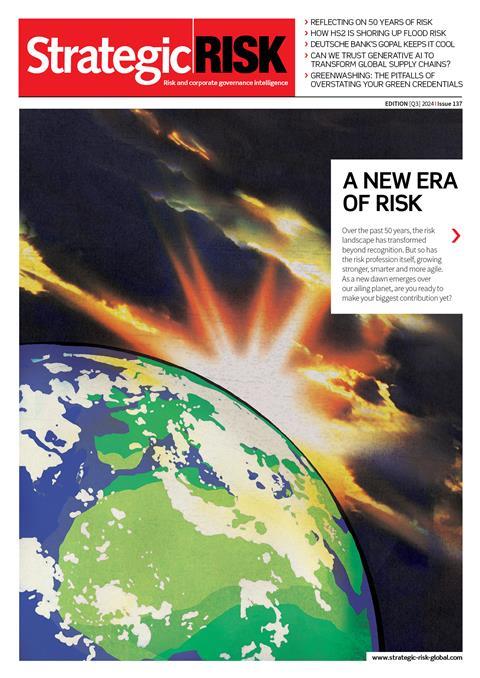How does strategic risk differ from any other? A common definition is that a strategic risk is a risk that a company takes to fulfil its business objectives. This implies a positive risk-taking decision. The reality is that many strategic risks that companies face nowadays come from outside: they are not the result of an innovative move or a change in corporate plans.
Companies going about their day to day business without innovating, and without apparent risk-taking, may in fact face a higher level of
strategic risk: either because they are failing to react to the way their market has changed, or because they fail to understand how society itself is changing.
Much has been written about the technological revolution - less about the accompanying social revolution. Technology has changed the way companies do things; the social revolution has changed the way people feel about companies' activities. There is more sympathy from the public (and from juries) than ever before when companies appear to be putting shareholder interests over social concern. The internet and other media alert people to what is happening in the corporate world - and provide a voice for the critical.
Expectations of shareholders, employees and members of the public have changed. Failure to meet these expectations is dangerous. Large investors are increasingly influential in deciding how companies are run. Employees will sue if they feel they're getting a bad deal.
The public will vote with its purse. Any and all of which can directly or indirectly affect shareholder value - a strategic risk indeed.
--
Sue Copeman











